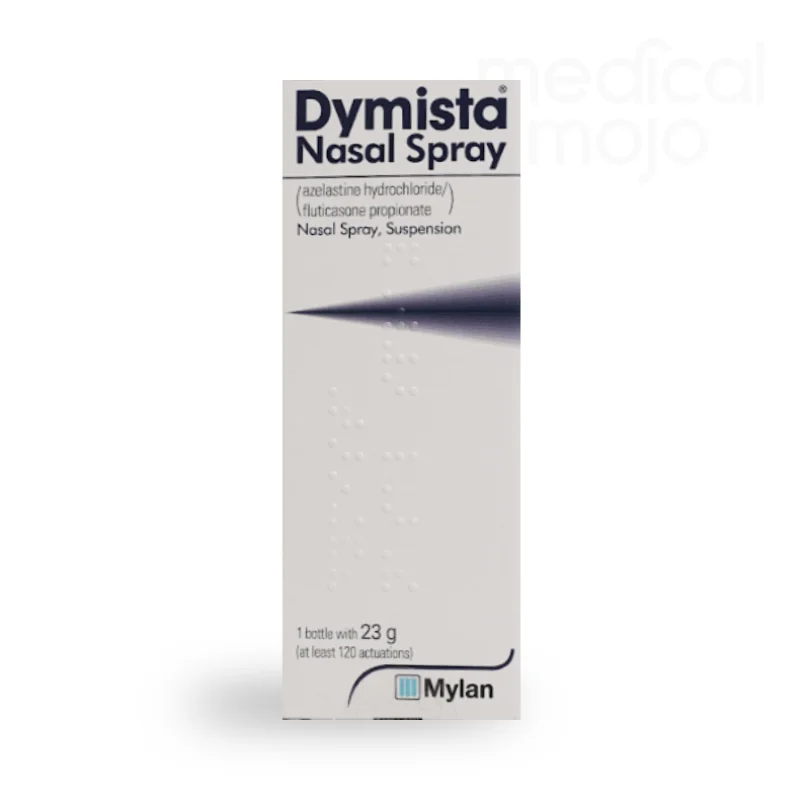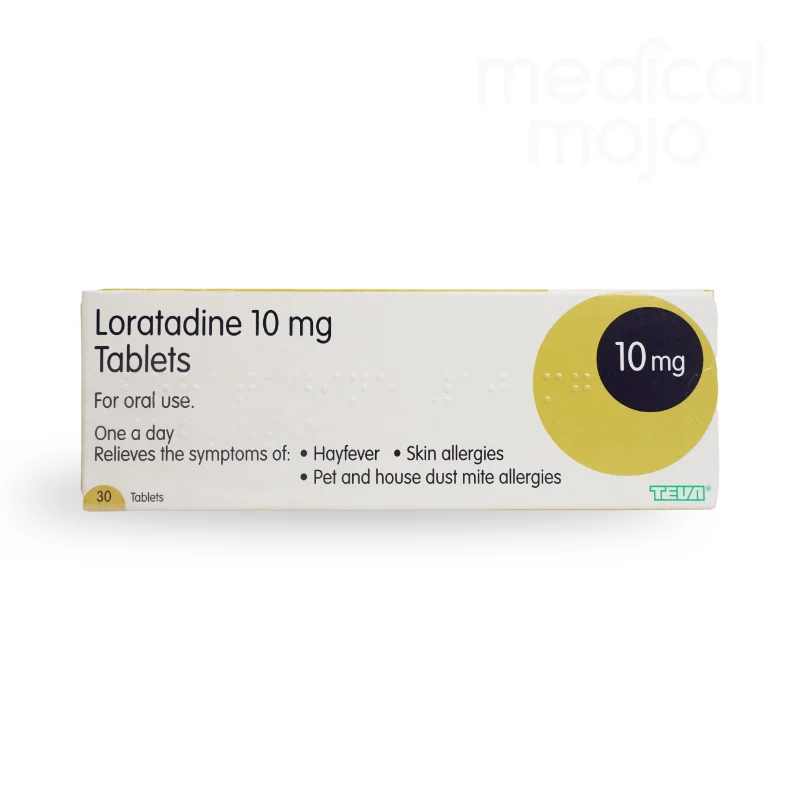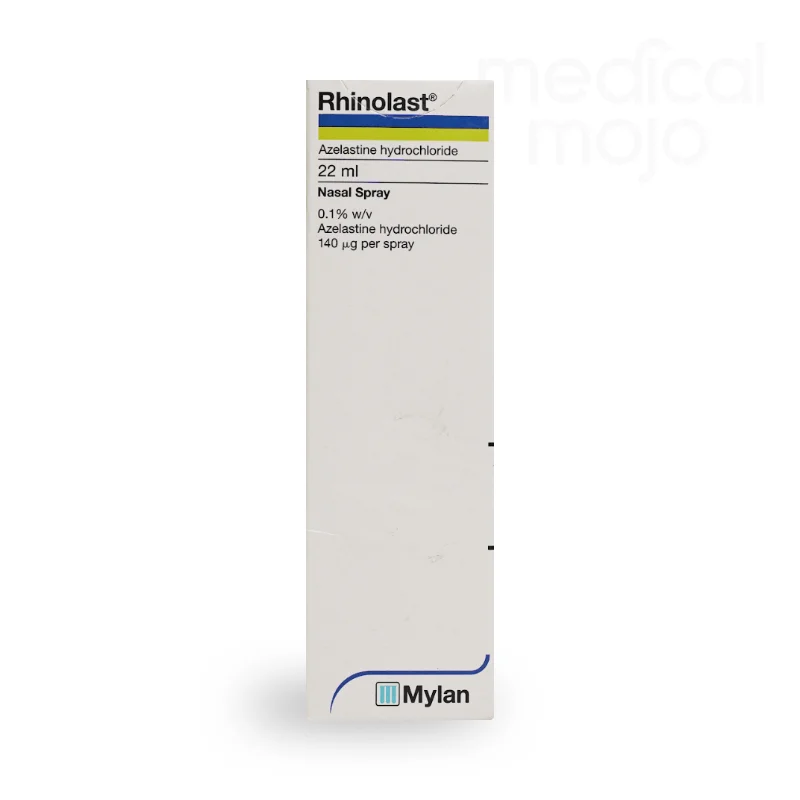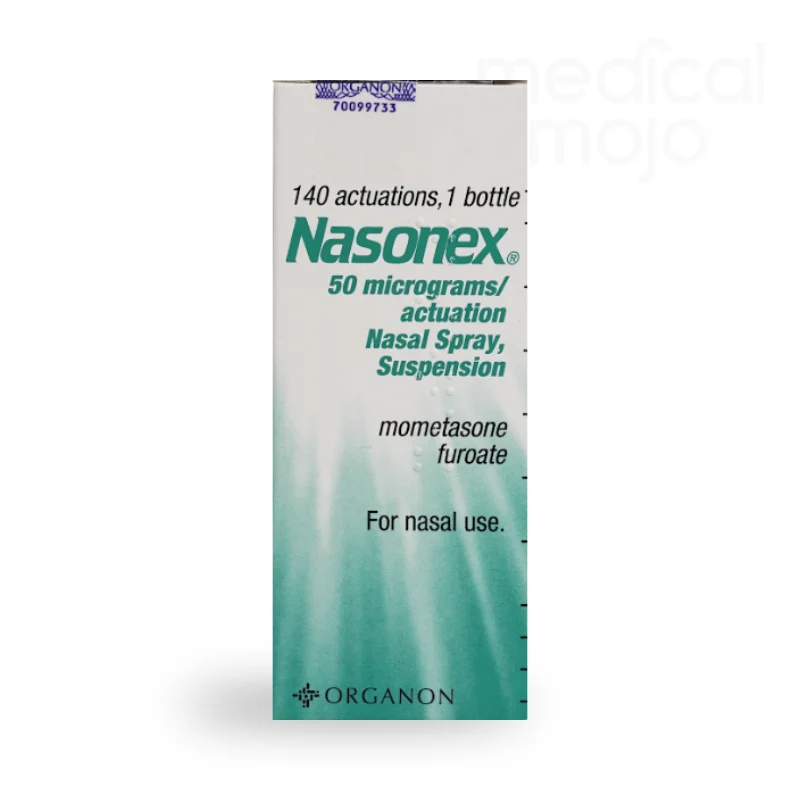What is Dymista Nasal Spray?
Dymista is a prescription nasal spray that provides relief from the symptoms of allergic rhinitis, commonly known as hay fever. It combines two active ingredients: azelastine hydrochloride, an antihistamine, and fluticasone propionate, a corticosteroid. Together, these ingredients help to reduce inflammation and block allergic reactions triggered by dust, pollen, and other allergens. Dymista is manufactured by Mylan and comes in a convenient bottle containing approximately 120 metered sprays. It is suitable for use by adults and children over the age of 12.
Is Dymista Nasal Spray a steroid?
Yes, one of the active ingredients in Dymista is a steroid called fluticasone propionate. This steroid works by reducing inflammation in the nasal passages, which helps to relieve the symptoms of hay fever. The effectiveness of the steroid builds up with regular use, making it more effective at preventing nasal irritation over time.
What is Dymista used for?
Dymista is primarily used to treat hay fever, but it is also effective for year-round allergies, such as those caused by pets and house dust mites. The symptoms of allergic rhinitis that Dymista helps to alleviate include sneezing, congestion, itching, a runny nose, and itchy, red eyes.
How does Dymista work?
Dymista works by combining a corticosteroid and an antihistamine to provide a powerful, dual-action defense against allergy symptoms. Azelastine, the antihistamine, acts quickly to reduce symptoms like itching, sneezing, and a runny nose. Fluticasone propionate, the corticosteroid, targets inflammation, helping to reduce swelling in the nasal passages and relieve congestion.
How long does Dymista stay in your system?
Dymista can start working within 30 minutes of use, but it may take a few days to feel its full benefits. The effects typically last between 12 and 48 hours after use. For best results, it’s recommended to start using Dymista a few days before exposure to known allergens.
What are the alternatives to Dymista Nasal Spray?
Dymista is a prescription-only medication, but there are several over-the-counter (OTC) alternatives you can try first. These include antihistamine tablets like Piriton, Loratadine, and Cetirizine, as well as OTC steroidal nasal sprays like Pirinase and Beclometasone. Prescription alternatives include nasal sprays such as Avamys, Flixonase, Rhinolast, and Nasonex, and eye drop solutions like Opticrom and Optilast. Non-medicinal methods, such as wearing wraparound sunglasses, keeping windows closed, and showering regularly to remove pollen, can also help reduce hay fever symptoms.
What is the recommended dosage for Dymista?
For adults and children over 12 years old, the recommended dosage is one spray in each nostril, morning and evening. You should not exceed this dosage. While using more than the recommended amount is unlikely to cause serious problems, it may increase the likelihood of side effects.
What are the ingredients in Dymista Nasal Spray?
Dymista contains 137 micrograms of azelastine hydrochloride (an antihistamine) and 50 micrograms of fluticasone propionate (a steroid) per spray. Other inactive ingredients include disodium edetate, glycerol, microcrystalline cellulose, carmellose sodium, polysorbate 80, benzalkonium chloride, phenylethyl alcohol, and purified water.
What are the possible side effects of Dymista?
The most common side effects of Dymista include nosebleeds, headaches, and a bitter or unpleasant taste or smell, which can often be relieved by eating or drinking something after using the spray. Uncommon side effects include mild irritation or dryness in the nose or throat. If you experience any side effects not listed here, stop using Dymista and consult your doctor immediately.
What should I tell my doctor before using Dymista?
Before using Dymista, inform your doctor if you have had a nose operation, untreated infections (especially in the nose), tuberculosis, liver disease, glaucoma, cataracts, or impaired adrenal function. Also, tell your doctor if you are taking HIV medications like ritonavir or antifungal medications like ketoconazole. Do not use other nasal steroidal medicines simultaneously with Dymista.
Make sure to read the Patient Information Leaflet thoroughly before using Dymista Nasal Spray.











